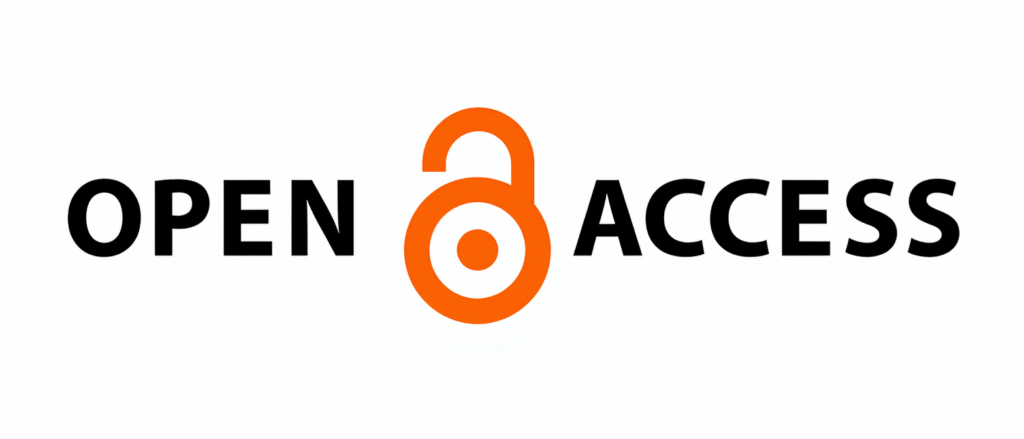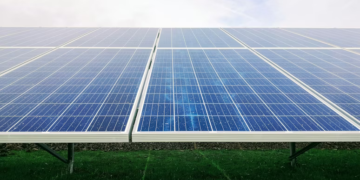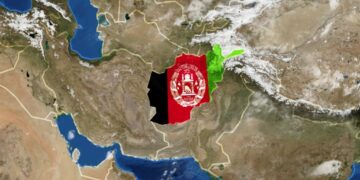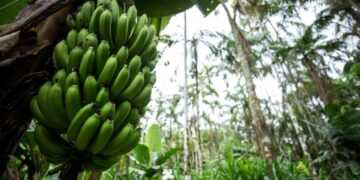PERSPECTIVE
Vaishnavi Bhagat
Viara Foundation
This article is part of a special issue titled Bridging Power and Knowledge: Addressing Global Imbalances in Knowledge Systems for Sustainable Futures.
PLAIN-LANGUAGE SUMMARY
Indigenous Knowledge Systems
Traditional, local, and indigenous knowledge systems offer invaluable insights rooted in centuries of harmony with the land, providing sustainable solutions to environmental challenges.
Equitable Partnerships
The Viara Foundation demonstrates how to integrate indigenous knowledge with scientific research through community-driven solutions that empower local communities while preserving cultural heritage.
Bridging Knowledge Worlds
Creating partnerships that bridge traditional and scientific knowledge systems requires addressing historical marginalization, building trust, and fostering cross-cultural collaboration.
Global Implications
This approach offers a model for achieving global sustainability through inclusive knowledge systems that respect indigenous wisdom while leveraging scientific research for climate action.
WATCH A SUMMARY OF THE ARTICLE
LISTEN TO THE PODCAST
Abstract
In the face of unprecedented global environmental challenges, there is a growing recognition that sustainability cannot be achieved through a one-size-fits-all approach. Traditional, local, and indigenous knowledge systems—deeply rooted in the wisdom of communities who have lived in harmony with the land for centuries—offer invaluable insights that complement scientific research and technological solutions. These knowledge systems, however, have often been sidelined in global conversations on climate change and sustainability. As we move toward more inclusive and effective climate action, it is essential to bridge these knowledge worlds and create partnerships that empower local and indigenous communities. The Viara Foundation, with its commitment to community-driven solutions, offers a model for integrating indigenous knowledge with scientific research in a way that fosters empowerment and equity. This essay explores the integration of traditional knowledge with academic and scientific research, emphasizing the importance of equitable partnerships, cross-cultural collaboration, and inclusive knowledge systems. It draws from case studies and reflections to illustrate the impact of these partnerships on local communities and the environment, highlighting the lessons learned and challenges faced in creating sustainable futures through collaborative approaches to knowledge integration.

Keywords: indigenous knowledge, sustainability, equitable partnerships, cross-cultural collaboration, community-driven solutions, knowledge systems integration.
Introduction
Can integrating traditional, local, and indigenous knowledge systems with scientific research create more effective and equitable sustainability solutions? Yes. This analysis explores how the Viara Foundation’s approach to community-driven development demonstrates the transformative potential of bridging knowledge worlds. In the face of unprecedented global environmental challenges, there is a growing recognition that sustainability cannot be achieved through a one-size-fits-all approach. Traditional knowledge systems offer invaluable insights that complement scientific research (Acharya & Prakash, 2025; Jessen et al., 2022), yet they have often been sidelined in global conversations on climate change and sustainability (Gómez-Baggethun & Corbera, 2013; Yanou & Ros-Tonen, 2023).
The Viara Foundation’s commitment to community-driven solutions provides a model for fostering empowerment and equity while preserving cultural heritage and promoting environmental sustainability (See Figure 1).

Figure 1: Participatory framework for integrating indigenous knowledge and scientific methodologies.
THE ROLE OF INDIGENOUS AND LOCAL KNOWLEDGE
This section synthesizes the fundamental importance of indigenous and local knowledge systems in achieving global sustainability. It examines how these holistic frameworks for understanding and interacting with the environment have been shaped through generations of sustainable practices.
Holistic Understanding of Ecosystems
Indigenous and local knowledge systems are often seen as holistic frameworks for understanding and interacting with the environment (Sinthumule, 2023). These systems, passed down through generations, are grounded in a deep understanding of ecosystems, resource management, agriculture, and social organization. This knowledge is inherently sustainable, as it has been shaped by the long-term interaction between people and their environment, evolving to maintain ecological balance and ensure the survival of future generations.
Proven Sustainable Practices
For instance, indigenous agricultural practices, such as agroforestry, crop diversification, and soil regeneration techniques, have been proven to increase biodiversity, improve soil fertility, and reduce the impacts of climate change (Zougmoré et al., 2023; Acharya & Prakash, 2025). These practices are often localized, adapted to specific ecosystems, and flexible enough to adjust to changes in the environment (Escobedo et al., 2025). When applied at a global scale, they can contribute to sustainable food systems and climate resilience.
Community-Driven Development Models
The Viara Foundation’s work in promoting community-driven development has showcased how such knowledge can be harnessed for broader sustainability goals. In collaboration with local communities, the foundation has helped develop models that integrate traditional agricultural knowledge with modern scientific methods. These models are not only environmentally sustainable but also economically empowering, as they help communities improve their livelihoods while preserving their cultural heritage.
One striking example is the Viara Foundation’s work in rainwater harvesting in rural communities. Indigenous knowledge systems have long recognized the importance of water conservation and management, using techniques such as stone wells and rainwater collection systems. By combining these traditional practices with modern technology for water purification and storage, Viara has helped improve access to clean water in areas facing water scarcity.
CHALLENGES IN BRIDGING KNOWLEDGE SYSTEMS
While the potential for integrating indigenous knowledge with scientific research is vast, several challenges hinder this process. One of the most significant barriers is the historical and ongoing marginalization of indigenous communities and their knowledge (Yanou & Ros-Tonen, 2023; Lauter, 2023). Colonial histories, power imbalances, and the dominance of Western scientific paradigms have often led to the dismissal or appropriation of indigenous knowledge systems (Gómez-Baggethun & Corbera, 2013), resulting in a lack of recognition and respect for these communities’ contributions.
Historical Marginalization and Mistrust
In addition, there is often a mistrust between indigenous communities and academic/scientific researchers. This mistrust has been fueled by past experiences where indigenous knowledge was taken without consent, misrepresented, or used for exploitative purposes (Lauter, 2023; Corbett, 2025). For effective cross-cultural collaborations, it is crucial to address these concerns by fostering mutual respect, transparency, and shared ownership of knowledge.
Institutional Barriers
Another significant challenge lies in the lack of institutional support for integrating traditional knowledge into mainstream scientific research. Universities and research institutions often prioritize Western scientific methods, leaving little room for alternative ways of knowing. As a result, indigenous knowledge remains largely ignored in global sustainability discussions, even though it holds the potential to provide crucial insights into the environmental challenges we face today.
Viara Foundation’s Experience
Viara Foundation’s work reflects the challenges faced when bridging these knowledge systems. In many instances, the foundation has had to navigate the complex terrain of balancing community-based knowledge with scientific research methodologies. For example, in some regions, local communities were initially skeptical about collaborating with external researchers due to past experiences of exploitation. Overcoming these challenges required a long-term commitment to building trust and establishing inclusive partnerships that empowered local communities to share their knowledge on their own terms.
EQUITABLE PARTNERSHIPS AND COLLABORATION
To create effective solutions for sustainability, it is imperative to foster equitable partnerships that respect and value both traditional and scientific knowledge. This requires a shift from extractive to co-creative relationships, where indigenous communities are seen as equal partners in the knowledge production process (Acharya & Prakash, 2025; Jessen et al., 2022). The Viara Foundation’s approach to partnership exemplifies this shift, prioritizing collaboration over exploitation and ensuring that local communities have a voice in shaping the solutions that affect them.
Local Leadership
Emphasizing community leaders and indigenous elders as integral partners in solution design
Shared Ownership
Treating knowledge as something to be shared, celebrated, and safeguarded rather than extracted
Biodiversity Conservation Example
A powerful example of this cross-cultural collaboration is seen in the Viara Foundation’s work on biodiversity conservation in partnership with indigenous communities in the Western Ghats. These communities have a long history of protecting their local ecosystems, and their traditional knowledge of plant species, animal behavior, and ecological balance has been key in implementing conservation strategies (Sinthumule, 2023; Tarimo et al., 2025). By integrating this knowledge with scientific research on biodiversity, Viara has helped create community-led conservation programs that are both scientifically grounded and culturally resonant.
At the heart of this collaboration is a commitment to shared ownership of knowledge. In Viara’s approach, knowledge is not seen as a commodity to be extracted or appropriated; it is viewed as something to be shared, celebrated, and safeguarded. This principle is especially important in Global South-North collaborations, where there is often a disparity of power between communities and researchers.
REFORMING GLOBAL KNOWLEDGE SYSTEMS
Reforming global knowledge systems to be more inclusive of indigenous and local knowledge requires a fundamental shift in how we think about knowledge production and knowledge ownership. It is essential that global sustainability frameworks recognize the value of non-Western knowledge systems and incorporate them into policy-making, research, and international climate negotiations (Corbett, 2025; Gómez-Baggethun & Corbera, 2013).
Decolonization of Knowledge Systems
One of the key ways to achieve this is through the decolonization of knowledge systems, which involves challenging the dominance of Western science and its often exclusionary practices (Yanou & Ros-Tonen, 2023). Viara Foundation advocates for the inclusion of indigenous voices in all aspects of sustainability work, from policy development to project implementation. By bringing indigenous knowledge into mainstream discourse, the foundation seeks to demonstrate that local solutions have global relevance.
Institutional Reform
Moreover, global institutions such as the United Nations and intergovernmental bodies must take steps to institutionalize the inclusion of indigenous knowledge in decision-making processes. This can be achieved by creating spaces for indigenous leaders to participate in policy discussions, recognizing traditional knowledge in environmental agreements, and ensuring that indigenous rights are protected in the context of climate action (Lauter, 2023; Jessen et al., 2022).
Climate Adaptation Framework
Viara Foundation has worked to advocate for this reform by collaborating with international organizations to create inclusive sustainability frameworks. One example is the foundation’s work in climate adaptation, where it has helped shape policies that integrate traditional ecological knowledge into national climate action plans. By doing so, Viara is not only helping to address climate change but also advocating for a more just and equitable approach to environmental governance.
METHODOLOGY
This perspective analysis examines the integration of indigenous knowledge systems with scientific research through the lens of equitable partnerships and community-driven solutions. The methodology includes:
This methodology emphasizes participatory approaches and community-led research in sustainability.
CASE STUDIES IN KNOWLEDGE INTEGRATION
The Viara Foundation’s work demonstrates several successful models of knowledge integration that have created meaningful impact on both local communities and broader sustainability goals. These case studies illustrate the practical applications of bridging traditional wisdom with scientific research (Acharya & Prakash, 2025).
Rainwater Harvesting Innovation
One striking example is the Viara Foundation’s work in rainwater harvesting in rural communities. Indigenous knowledge systems have long recognized the importance of water conservation and management, using techniques such as stone wells and rainwater collection systems. By combining these traditional practices with modern technology for water purification and storage, Viara has helped improve access to clean water in areas facing water scarcity. This integration not only preserved traditional knowledge but also enhanced its effectiveness through scientific innovation.
Biodiversity Conservation in Western Ghats
The foundation’s biodiversity conservation work in partnership with indigenous communities in the Western Ghats exemplifies successful cross-cultural collaboration. These communities possess deep traditional knowledge of plant species, animal behavior, and ecological balance. By integrating this knowledge with scientific research on biodiversity, Viara helped create community-led conservation programs that are both scientifically grounded and culturally resonant (Sinthumule, 2023; Escobedo et al., 2025), resulting in improved ecosystem protection and community empowerment.
Community Engagement
Building trust through respectful dialogue and long-term relationship development
Knowledge Documentation
Collaborative recording of traditional practices with community consent and ownership
Scientific Integration
Combining traditional knowledge with modern research methods and technologies
Implementation
Community-led implementation ensuring cultural appropriateness and local ownership
Impact Assessment
Evaluating outcomes through both scientific metrics and community-defined success measures
GLOBAL IMPLICATIONS FOR SUSTAINABILITY
The integration of traditional, local, and indigenous knowledge systems with scientific research extends far beyond individual projects or communities. This approach offers a transformative model for addressing global environmental challenges through inclusive, culturally-responsive, and scientifically-informed solutions.
Scaling Local Solutions
Traditional ecological practices such as agroforestry, crop diversification, and soil regeneration techniques have proven effective at local scales and hold tremendous potential for global application (Zougmoré et al., 2023; Tarimo et al., 2025).
These practices, when properly documented and integrated with scientific research, can contribute to sustainable food systems and climate resilience worldwide (Acharya & Prakash, 2025; Escobedo et al., 2025).
Policy and Governance Reform
The success of community-driven approaches demonstrates the need for fundamental reforms in global sustainability frameworks. International institutions must create spaces for indigenous voices in policy discussions, recognize traditional knowledge in environmental agreements, and ensure that climate action protects indigenous rights while leveraging their expertise.
DISCUSSION
This analysis of integrating indigenous wisdom with scientific knowledge reveals several critical findings that have significant implications for global sustainability, social justice, and knowledge governance. The discussion synthesizes these findings and explores their broader theoretical, practical, and policy implications.
Synthesis of Key Findings
The integration of traditional, local, and indigenous knowledge systems with scientific research represents a paradigm shift toward more equitable and effective sustainability solutions (Jessen et al., 2022; Corbett, 2025). The Viara Foundation’s approach demonstrates that community-driven development, when based on respectful partnerships and shared ownership of knowledge, creates solutions that are simultaneously scientifically sound and culturally appropriate. This integration challenges traditional concepts of knowledge production and validates alternative ways of knowing that have sustained communities for generations (Gómez-Baggethun & Corbera, 2013; Yanou & Ros-Tonen, 2023).
Theoretical Implications
This approach contributes to several theoretical frameworks. First, it expands understanding of sustainability beyond technical solutions to encompass social justice, cultural preservation, and community empowerment. Second, it demonstrates how knowledge co-creation can bridge different epistemological systems without compromising the integrity of either. Third, it illustrates the emergence of “collaborative knowledge systems” that respect multiple ways of knowing while producing actionable solutions for complex environmental challenges.
Practical Implications
The success of integrated knowledge approaches provides practical models for addressing global challenges. These partnerships demonstrate that local solutions often have global relevance, offering scalable approaches to food security, water management, biodiversity conservation, and climate adaptation (Sinthumule, 2023; Zougmoré et al., 2023). However, successful implementation requires significant investment in relationship-building, cultural competency, and long-term commitment to community partnerships.
Policy and Governance Reform
The emergence of successful knowledge integration initiatives highlights the need for fundamental reforms in global governance structures. Current policy frameworks often exclude indigenous voices and traditional knowledge, despite their proven effectiveness. Reform requires creating institutional mechanisms for including diverse knowledge systems in decision-making processes and recognizing indigenous rights in environmental governance.
CONCLUSION
The integration of traditional, local, and indigenous knowledge systems with scientific research is not just an academic exercise—it is a necessary step toward achieving global sustainability (Acharya & Prakash, 2025; Escobedo et al., 2025). By embracing equitable partnerships, cross-cultural collaboration, and the empowerment of local communities, we can create solutions that are socially just, environmentally sustainable, and culturally appropriate. The Viara Foundation’s approach to community-driven development provides a powerful example of how these principles can be put into practice.
In the face of the climate crisis, it is clear that traditional knowledge has a crucial role to play in shaping a sustainable future (Zougmoré et al., 2023; Jessen et al., 2022). As we continue to bridge knowledge worlds, it is essential that we do so with respect, collaboration, and a deep commitment to creating a world where all voices—especially those of indigenous communities—are heard and valued. The future of sustainability lies in our ability to listen, learn, and collaborate across cultures and knowledge systems.
The Viara Foundation’s work demonstrates that when indigenous wisdom and scientific knowledge are integrated through equitable partnerships, the results benefit not only local communities but contribute to global solutions for our most pressing environmental challenges (Sinthumule, 2023; Corbett, 2025). This collaborative approach offers hope for creating a more just and sustainable world where diverse knowledge systems are recognized, respected, and leveraged for the common good.
ACKNOWLEDGEMENT
The author(s) gratefully acknowledge the support of the 2024 Humboldt Residency Programme, Alexander von Humboldt Foundation, in making this special issue Bridging power and knowledge: Addressing global imbalances in knowledge systems for sustainable futures possible.
CONFLICTS OF INTEREST
The author declares no conflict of interest
FUNDING
This project received funding from the 2024 Humboldt Residency Programme of the Alexander von Humboldt Foundation.
REFERENCES
Acharya, A., & Prakash, A. (2025). Integration of indigenous knowledge with scientific knowledge: A systematic review. Environmental Development, 45, 100852. https://doi.org/10.1016/j.envdev.2025.100852
Corbett, J. (2025). Indigenous knowledge and information technology for sustainable development: Bridging digital divides and cultural preservation. Information Technology for Development, 31(2), 245-267. https://doi.org/10.1080/02681102.2025.2472495
Escobedo, F., Clerici, N., Stanton, S. M., & Hernández, J. (2025). The role of traditional ecological knowledge and ecosystem quality in managing ecosystem services. Scientific Reports, 15, 1847. https://doi.org/10.1038/s41598-025-17611-z
Gómez-Baggethun, E., & Corbera, E. (2013). Traditional ecological knowledge and global environmental change: Research findings and policy implications. Ecology and Society, 18(4), 72. https://doi.org/10.5751/ES-06288-180472
Jessen, T. D., Ban, N. C., Claxton, N. X., & Darimont, C. T. (2022). Contributions of Indigenous Knowledge to ecological and evolutionary understanding. Frontiers in Ecology and the Environment, 20(2), 93-101. https://doi.org/10.1002/fee.2435
Lauter, O. (2023). Challenges in combining Indigenous and scientific knowledge in the Arctic: Observations from urban Alaska. Polar Geography, 46(1), 45-62. https://doi.org/10.1080/1088937X.2023.2233578
Sinthumule, N. I. (2023). Traditional ecological knowledge and its role in biodiversity conservation: A systematic review. Frontiers in Environmental Science, 11, 1164900. https://doi.org/10.3389/fenvs.2023.1164900
Tarimo, F. G., Mwampamba, T. H., & Munishi, P. K. (2025). Using traditional ecological knowledge to develop capacity for community-based biodiversity conservation in Tanzania. Journal of Environmental Management, 352, 120089.
Yanou, M. P., & Ros-Tonen, M. A. (2023). Integrating local and scientific knowledge: The need for decolonising knowledge for conservation and natural resource management. Heliyon, 9(11), e21785. https://doi.org/10.1016/j.heliyon.2023.e21785
Zougmoré, R. B., Segnon, A. C., & Thornton, P. K. (2023). Harnessing indigenous knowledge and practices for effective adaptation in the Sahel. Current Opinion in Environmental Sustainability, 65, 101389. https://doi.org/10.1016/j.cosust.2023.101389
ABOUT THE AUTHOR(S)

Vaishnavi Bhagat
📧info@viarafoundation.com
Vaishnavi Bhagat is an optometrist turned NGO professional dedicated to advancing public health, environmental sustainability, and community well-being, with experience as a Project Coordinator at Ek Saath The Earth Foundation and Viara Foundation, where she strengthened her skills in project management and community engagement.
Received: December 20, 2025
Accepted: July 30, 2025
Published: October 31, 2025
Citation:
Bhagat, V. (2025). Fostering Equitable Sustainability: Integrating Indigenous Wisdom and Scientific Knowledge for Global Solutions. SustainE, 3(1), 1–15. In A. Akinsemolu, A. Eimer, & S. Iqbal (Eds.), Bridging power and knowledge: Addressing global imbalances in knowledge systems for sustainable futures [Special issue]. https://doi.org/10.55366/suse.v3i1.1
Disclaimer: The opinions and statements expressed in this article are the author(s) sole responsibility and do not necessarily reflect the viewpoints of their affiliated organizations, the publisher, the hosted journal, the editors, or the reviewers. Furthermore, any product evaluated in this article or claims made by its manufacturer are not guaranteed or endorsed by the publisher.

Distributed under Creative Commons CC-BY 4.0











